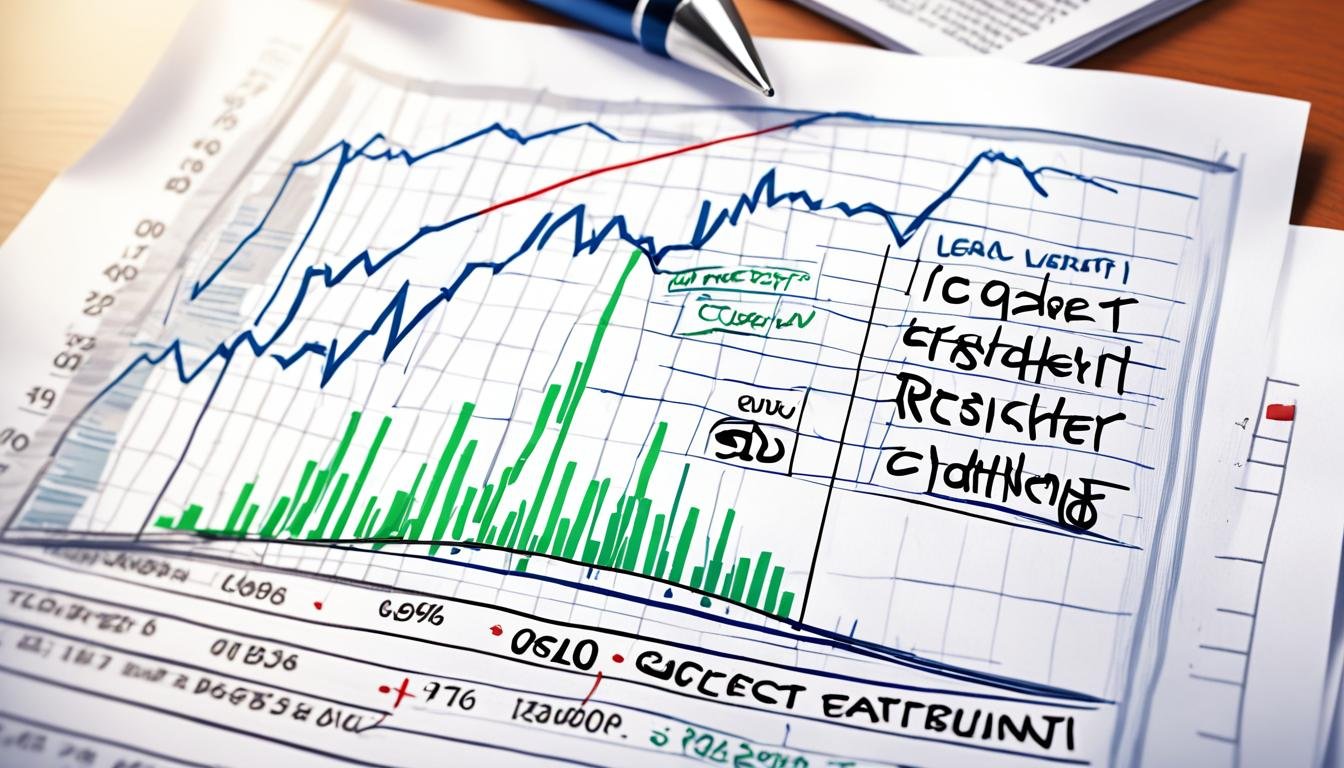Insider Trading Laws: Understanding the Basics
Did you know that insider trading can have significant repercussions for both individuals and the financial markets? It is a form of trading that involves individuals with non-public, material information about a company making trades that can impact stock prices and investors. The consequences can range from substantial fines to imprisonment.
Insider trading is a complex area of securities law that requires a comprehensive understanding of its intricacies. In this article, we will delve into the fundamentals of insider trading laws, the distinction between legal and illegal activities, notable examples, and the implications for corporate governance and investor trust.
Key Takeaways:
- Insider trading involves trading in stocks or securities based on non-public, material information about a company.
- Non-public, material information refers to information that can substantially impact an investor’s decision and has not been made available to the public.
- Illegal insider trading occurs when individuals trade on non-public information without disclosing it or before it becomes public.
- Insider trading cases, such as Martha Stewart’s involvement in the ImClone case, highlight the legal consequences and impact on market integrity.
- Insider trading laws aim to maintain a fair and transparent marketplace, preventing securities fraud and protecting investor interests.
What Is Insider Trading?
Insider trading refers to the practice of buying or selling a publicly traded company’s stock using non-public, material information about the company. Non-public, material information includes any information that has not been made available to the general public and could significantly impact an investor’s decision to buy or sell a security.
Insider transactions are considered legal if the insider who possesses this non-public information executes the trade and reports it to the Securities and Exchange Commission (SEC). The SEC has instituted regulations to ensure that insider trading is conducted in a fair and transparent manner.
According to SEC regulations, non-public information should not be used as an advantage to gain profits at the expense of other shareholders. Transparency and accountability are essential elements in maintaining the integrity of the securities market.
A quote by Gary Gensler, the current Chairman of the SEC:
“Insider trading undermines investor confidence in the fairness and efficiency of our markets. That is why the SEC is committed to detecting and prosecuting insider trading violations.”
To illustrate the flow of information in insider trading, the diagram below presents an overview of how non-public information can be utilized and how SEC regulations can ensure transparency and fairness:
Key Points:
- Insider trading involves buying or selling a public company’s stock using non-public, material information about the company.
- Non-public, material information refers to information that could have a significant impact on an investor’s decision and has not been made available to the public.
- Insider transactions are legal when the insider reports the trade to the SEC.
- The SEC has regulations in place to ensure fair and transparent trading practices.
Legal vs. Illegal Insider Trading
When it comes to insider trading, there is a clear distinction between legal and illegal activities. Understanding the regulations set by the Securities and Exchange Commission (SEC) and the consequences of illegal trading is essential for individuals involved in the stock market.
The Securities Exchange Act of 1934 mandates that directors, executives, and individuals with more than 10% ownership in a company’s securities must file SEC forms when engaging in insider transactions. These forms ensure transparency and accountability in the marketplace.
Insider transactions are considered legal as long as the required forms are filed within the specified timeframes. This process allows for proper disclosure of trades and helps prevent any potential abuse of non-public information.
On the other hand, illegal insider trading encompasses various activities that violate SEC regulations. This includes failing to submit the required forms and engaging in trading activities based on non-public information before it is made available to the public.
The consequences for illegal insider trading can be severe. Those found guilty may face hefty fines and even imprisonment. The penalties serve as a deterrent, aiming to maintain fairness and integrity in the stock market.
Insider trading penalties can include significant financial repercussions and the loss of personal freedom. The SEC’s strict enforcement of regulations showcases their commitment to combating illegal trading activities and protecting investors’ interests.
It is crucial for insiders and market participants to abide by SEC regulations and fulfill their reporting obligations. By doing so, they contribute to a transparent and fair marketplace for all investors.
| Legal Insider Trading | Illegal Insider Trading |
|---|---|
| – Required SEC forms filed within specified timeframes | – Failure to submit required forms |
| – Trades made in accordance with regulations | – Trading based on non-public information |
| – Transparent and accountable transactions | – Undermining fairness and integrity of the market |
Ensuring compliance with insider trading laws is essential for maintaining the trust of investors and preserving the integrity of the stock market. Market participants must prioritize following SEC regulations to prevent illegal trading activities and uphold the principles of fair competition.
Examples of Insider Trading
To understand the real impact of insider trading, let’s take a look at some notable examples that have made headlines. These cases not only showcase the consequences of insider trading but also shed light on the implications of securities fraud. Two well-known cases involve Martha Stewart and Amazon.
Martha Stewart and the ImClone Case
Martha Stewart, a renowned businesswoman and television personality, was involved in a high-profile insider trading case known as the ImClone case. In 2001, Stewart received non-public information about ImClone Systems, a biopharmaceutical company. The information indicated that the stock price was about to drop significantly. Acting on this information, Stewart sold her shares in ImClone just one day before the negative announcement was made public.
Stewart’s actions raised suspicions, and she became the target of an investigation by the Securities and Exchange Commission (SEC). Ultimately, she was found guilty of securities fraud and obstruction of justice, resulting in a prison sentence and substantial fines.
Brett Kennedy, Former Amazon Analyst
Brett Kennedy, a former analyst at Amazon, was involved in another insider trading case that highlights how even industry professionals can engage in illegal activities. Kennedy provided insider information to a fellow alumnus, allowing the alumnus to trade based on non-public information.
Both Kennedy and his accomplice were charged with securities fraud and faced legal consequences for their actions. This case serves as a reminder that insider trading can occur within reputable companies and individuals who hold influential positions.
These examples demonstrate the significant impact of insider trading on the stock market and the severity of securities fraud. Insider trading not only undermines the fairness and integrity of the financial markets but also erodes public trust. To maintain a level playing field for all investors, it is crucial to enforce insider trading laws and prevent such illegal activities from occurring.
Has Insider Trading a Negative Connotation?
The term “insider trading” generally has a negative connotation because it is seen as unfair to the average investor. Insider trading involves trading in a public company’s stock by someone with non-public, material information about that stock.
However, it is important to note that insider transactions can be legal if they are done in accordance with the rules set by the SEC. The negative connotation arises from the perception that insider trading undermines the fairness and integrity of the stock market.
“Insider trading undermines the level playing field required for fairness and integrity in the stock market.”
By trading based on non-public information, insiders have an unfair advantage over other market participants who do not have access to the same information.
The Fairness and Integrity of the Stock Market
The stock market operates on the principles of fairness and integrity. Investors rely on accurate and transparent information to make informed decisions about buying or selling securities. When insiders trade based on privileged information, it distorts the market and undermines these principles.
Insider trading can create an uneven playing field where some investors have an unfair advantage over others. This erodes trust in the market and can discourage individuals from participating, particularly small investors who may feel disadvantaged in the presence of insider information.
The Role of Stock Market Regulations
Stock market regulations, such as those enforced by the SEC, aim to address these fairness and integrity concerns associated with insider trading. The SEC requires insiders to disclose their trades within specified timeframes, allowing transparency and ensuring that all investors have access to the same information.
Additionally, the SEC actively monitors trading activities to detect suspicious patterns that may indicate potential insider trading. This regulatory oversight helps maintain confidence in the market and protects the interests of individual investors by discouraging illegal and unfair practices.
Comparing Legal and Illegal Insider Trading
| Legal Insider Trading | Illegal Insider Trading |
|---|---|
| Insiders report their trades to the SEC | Insiders fail to report their trades |
| Insiders trade based on publicly available information | Insiders trade based on non-public, material information |
| Insiders comply with SEC regulations | Insiders violate SEC regulations |
| Trading activities are transparent | Trading activities are hidden and non-transparent |
As the table above illustrates, legal insider trading occurs when insiders comply with SEC regulations, report their trades, and trade based on publicly available information. This type of insider trading, although not free from criticism, is considered legal and contributes to the overall efficiency of the stock market.
On the other hand, illegal insider trading involves insiders trading on non-public, material information and failing to comply with SEC regulations, leading to unfair advantages and eroding market integrity.
Overall, the negative connotation associated with insider trading stems from the perception that it undermines fairness and integrity in the stock market. While legal insider trading is allowed within the boundaries set by stock market regulations, illegal insider trading raises concerns and can have severe consequences for both individuals and the overall market. Strict enforcement of stock market regulations and transparency in trading are essential to maintain trust and promote a level playing field for all investors.
When Is Insider Trading Illegal?
Insider trading becomes illegal when individuals trade based on non-public information that could significantly impact a company’s stock price. Engaging in such activities comes with severe consequences, including potential fines and jail time. The Securities and Exchange Commission (SEC) actively monitors trading patterns to identify suspicious behavior and prosecute insider trading violations. These illicit practices erode investor confidence in the fairness and integrity of the securities markets.
Insider trading penalties serve as a deterrent and aim to uphold market integrity. The severity of these penalties depends on the specific case, but they can include substantial fines and imprisonment. By penalizing insider trading, the legal system strives to prevent individuals from gaining an unfair advantage while also protecting the interests of all market participants.
Non-public information is a critical factor in determining the legality of insider trading. Trading based on information that has not been released to the public is considered a breach of fairness and transparency. Market participants must adhere to regulations that promote a level playing field for all investors.
“Insider trading penalties serve as a deterrent and aim to uphold market integrity.”
The impact of insider trading on stock prices can be significant. By trading based on non-public information, individuals can manipulate stock prices in their favor, leading to unfair gains or losses for other investors. This undermines the integrity of the securities markets and disrupts the efficient allocation of capital.
The SEC’s role in monitoring insider trading activities is vital in maintaining a fair and transparent marketplace. Through regulatory oversight and enforcement, the SEC aims to protect investors’ interests and ensure the integrity of securities trading.
Insider Trading Penalties
| Possible Penalties | Description |
|---|---|
| Fines | Insider trading can result in substantial financial penalties, often exceeding millions of dollars. Fines are imposed to deter individuals from engaging in illegal trading activities and to compensate for any potential harm caused. |
| Jail Time | Serious cases of insider trading can lead to imprisonment. The length of the sentence depends on various factors, including the severity of the offense, the individual’s cooperation with authorities, and previous criminal history. |
| Disgorgement | In addition to fines, perpetrators of insider trading may be required to disgorge any profits they obtained from their illegal activities. Disgorgement aims to prevent unjust enrichment and restore fairness in the marketplace. |
| Civil Lawsuits | Insider trading victims, such as other investors who suffered losses due to fraudulent activities, can file civil lawsuits seeking financial compensation. These lawsuits supplement criminal penalties and provide a means of redress for affected parties. |
When Is Insider Trading Legal?
Legal insider transactions occur in the stock market when company insiders trade company stock in accordance with the regulations set by the Securities and Exchange Commission (SEC). These transactions are considered legal because they are conducted in a fair marketplace where all investors have equal access to the same information.
Company insiders, such as directors and executives, are required to report their trades to the SEC, ensuring transparency and providing valuable information to investors. The reporting requirements set by the SEC help maintain market integrity and promote fair trading practices.
The Impact of SEC Regulations on Insider Transactions
| SEC Regulation | Description |
|---|---|
| Form 4 Reporting | Insiders are required to file Form 4 with the SEC to disclose their transactions within two business days. This includes information about the date, price, and quantity of the transaction. |
| Section 16 Reporting | Directors, officers, and shareholders who own more than 10% of a company’s stock must file Form 3, 4, and 5 to report their holdings and transactions. This helps prevent insider trading and ensures transparency. |
| Rule 10b5-1 | This rule allows insiders to establish prearranged trading plans, known as 10b5-1 plans, to buy or sell company stock at predetermined times or prices. These plans provide a defense against allegations of insider trading. |
By complying with SEC regulations, companies and insiders contribute to a level playing field for all investors, fostering investor confidence and trust in the stock market. Insiders who adhere to these regulations demonstrate their commitment to operating within the boundaries of a fair and transparent marketplace.
Insider Trading Laws: Impact and Implications
Insider trading laws play a crucial role in maintaining market integrity and preventing securities fraud. These laws are designed to ensure that investors have access to accurate and timely information when making investment decisions, promoting transparency and fairness in the stock market. Corporate governance, white-collar crime, and securities fraud prevention are central themes in the implementation and enforcement of insider trading laws.
Corporate governance refers to the system of rules, practices, and processes by which a company is directed and controlled. Insider trading can severely undermine corporate governance by eroding public trust in the financial system. When individuals with privileged access to non-public information trade securities for personal gain, it disrupts the level playing field that is essential for a fair and functioning market.
Insider trading is considered a white-collar crime, which refers to financially motivated illegal activities typically committed by individuals in business or professional positions. Insider trading falls into this category as it involves exploiting confidential or non-public information to gain an unfair advantage in trading securities. By criminalizing such activities, insider trading laws deter individuals from engaging in fraudulent practices and protect the integrity of the financial system.
One of the main objectives of insider trading laws is to prevent securities fraud. By prohibiting insider trading, regulators aim to preserve market integrity and ensure that investors can trust the accuracy and reliability of information available in the marketplace. Securities fraud can have devastating consequences for investors, causing financial losses and eroding confidence in the stock market.
Insider trading laws are crucial for safeguarding the fairness and transparency of the stock market. By enforcing these laws, regulators create an environment where all investors can participate on equal footing and make informed decisions based on accurate and timely information.
To better understand the impact and implications of insider trading laws, let’s examine a table that highlights key details about corporate governance, white-collar crime, and securities fraud prevention:
| Concept | Overview |
|---|---|
| Corporate Governance | The system of rules and practices by which a company is directed and controlled |
| White-collar Crime | Financially motivated illegal activities committed by individuals in business or professional positions |
| Securities Fraud Prevention | The enforcement of laws and regulations to deter fraudulent practices and protect investors |
Insider trading laws are essential for maintaining market integrity, preventing securities fraud, and promoting fair and transparent trading practices. By upholding these laws, regulators aim to preserve the credibility and trustworthiness of the stock market, ensuring that investors can confidently participate in the financial system.
Conclusion
Insider trading laws are a crucial aspect of securities regulations that play a significant role in maintaining market integrity and protecting investor interests. It is essential for investors and market participants to have a solid understanding of these laws to navigate the complex world of financial markets.
Insider trading, when executed based on non-public material information, can have severe consequences. Individuals who engage in illegal insider trading risk facing substantial fines, imprisonment, and irreparable damage to their reputation. These laws exist to prevent securities fraud, promote fairness, and ensure a level playing field for all investors.
To uphold market integrity and transparency, regulatory bodies such as the Securities and Exchange Commission (SEC) closely monitor trading activity and enforce compliance with insider trading laws. Compliance with SEC regulations, including timely reporting of insider transactions, is crucial to foster a fair and transparent trading environment.
By understanding the basics of insider trading laws, investors and market participants can make informed decisions and actively contribute to the preservation of market integrity. Consistent adherence to these laws is key in protecting the integrity of the securities markets and maintaining the trust of investors around the world.








